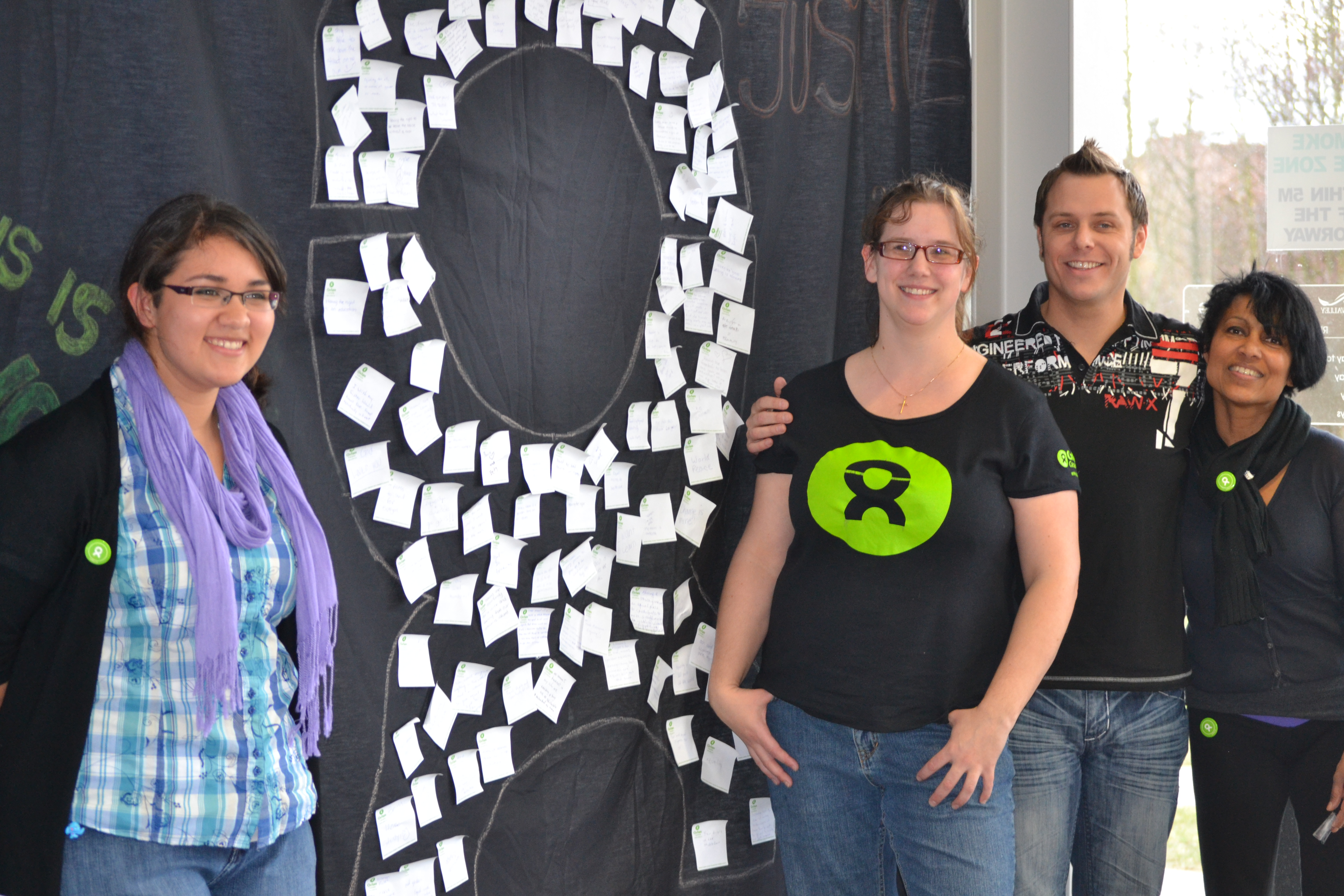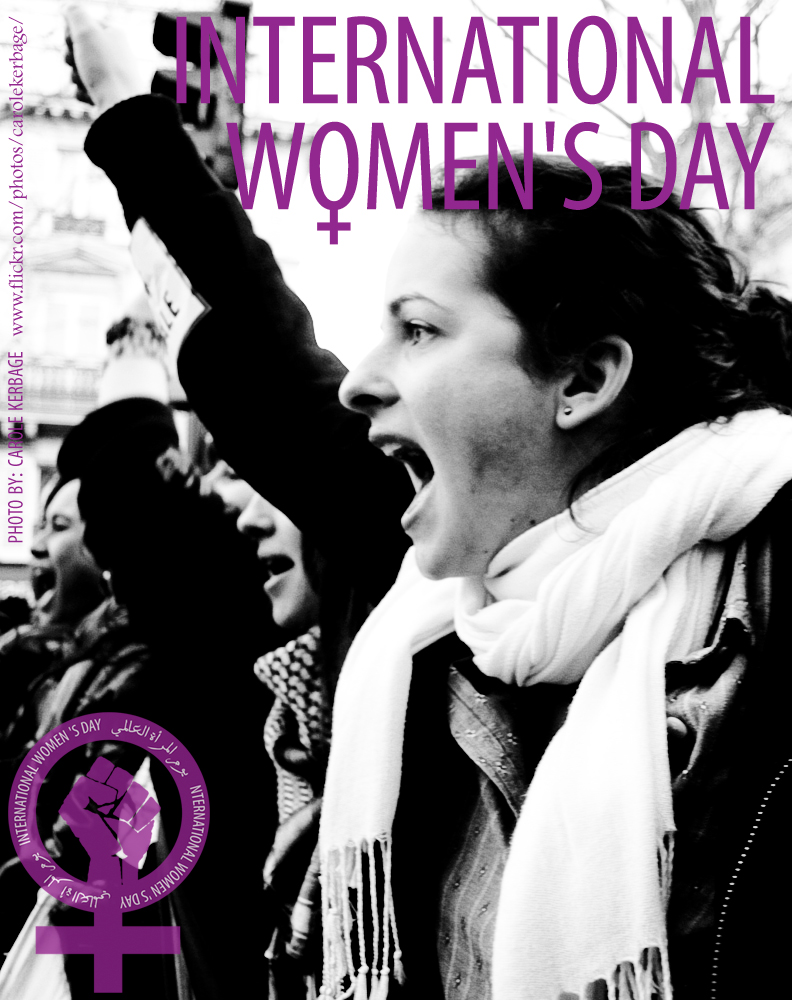 In 1931, Canadian icon Emily Murphy spoke the immortal words, “We want women leaders today as never before, leaders who are not afraid to be called names and who are willing to go out and fight. I think women can save civilization. Women are persons.”
In 1931, Canadian icon Emily Murphy spoke the immortal words, “We want women leaders today as never before, leaders who are not afraid to be called names and who are willing to go out and fight. I think women can save civilization. Women are persons.”
These words ring just as true for Canadians today as they did then, and Murphy is one of the many women who continue to be honoured on United Nations International Women’s Day, which was celebrated on March 8 at UFV. This year’s theme was “Equal access to education, training, science, and technology: Pathway to decent work for women,” and the event marked a serious milestone: the celebration’s 100th official year.
Students, staff, and faculty alike honoured the day in numerous ways: the South Asian Peer Networking Association sold roses and chocolates outside of Abbotsford’s G Building, and Oxfam set up an information table earlier in the week and had students participate in creating a mural. Satwinder Bains – Director of the Centre for Indo Canadian studies – also led a discussion on the issues that women in the Fraser Valley continue to face today, and the Chilliwack library set up a display outlining the history of International Women’s Day and distributed free coffee, tea, and cookies to all students, faculty, and staff from 9:30-4.
Additionally, Dr. Jean Scott paid a visit to the Chilliwack campus to speak on the importance of the day and to remind all attendees that the fight for equality is still far from over. Scott is well-versed in the subject as a women’s rights activist who – among her many achievements – co-founded the Chilliwack transition house, received an honorary doctorate from UFV, and won the Governor General’’ Persons Case award in 1990, “for her creative and innovative efforts to promote women’s issues.” During her presentation, Scott passed around the medal she received for the award for attendees to touch and hold.
In Canada, the women’s movement is often most strongly associated with the birth of the “Persons Case” in 1927, when the “Famous Five” – composed of Henrietta Muir Edwards, Nellie McClung, Louise Crummy KcKinney, Emily Murphy, and Irene Parlby – began petitioning for the legal acknowledgement of women as “qualified persons.” This specific phrase was significant in that it appeared in section 24 of the 1867 British North America act, describing which persons were eligible to be appointed to Senate.
The Supreme Court of Canada initially ruled that women did not, in fact, qualify as persons – but the Famous Five were undaunted, and sought an appeal with the Judicial Committee of the Privy Council in England. Their efforts were successful: on October 18, 1929, the Committee found that “qualified persons” did include women after all, overturning the decision of the Supreme Court and deeming them “eligible to be summoned to and become members of the Senate of Canada.”
The Government of Canada began awarding Persons Case medals to women making significant contributions to the pursuit of female equality in 1979, as a way of honouring “the determination and dedication of these remarkable women [the Famous Five].” It is the only such award in the country; the first recipients included women like Dr. Elizabeth Bagshaw – who was among the very few female physicians of her time, and “whose works included pioneer efforts in providing women with information and advice on birth control” – and Mary Two-Axe Early, who founded Indian Rights for Indian Women and fought “to ensure rights for native Indian women are equal to those of native Indian men.”
The Persons Case was further recognized in October 2009, when the Senate of Canada granted all members of the Famous Five posthumous status as Honorary Senators.
While International Women’s Day celebrates the achievements of the many men and women who have joined in the fight for global equality, it does not fail to recognize the many improvements that must still be made. While Canadian women have long since obtained the vote, have moved into all areas of the workforce, and are seeking post-secondary education in increasing numbers – with the amount of enrolled females now even exceeding the number of enrolled males – these women still struggle with issues like persistent wage inequality (even with education and experience equal to that of their male counterparts) and low representation in politics and high-ranking positions in business. Additionally, many women still struggle on a global scale simply to achieve education, reproductive rights, and freedom from violence. International Women’s Day seeks to inspire men and women to fight for the rectification of these injustices, aspiring to one day create a world where men and women are truly treated as equals.
Sources:
http://www.swc-cfc.gc.ca/dates/gg/recip-laure/1990-eng.html
http://www.collectionscanada.gc.ca/women/030001-1100-e.html
http://www.swc-cfc.gc.ca/dates/gg/case-affaire-eng.html
http://www.swc-cfc.gc.ca/dates/gg/recip-laure/1979-eng.html
http://www.wgnrr.org/
http://www.un.org/womenwatch/feature/iwd/history.html
http://www.ufv.ca/library/exhibits/internationalwomensday2011.html


